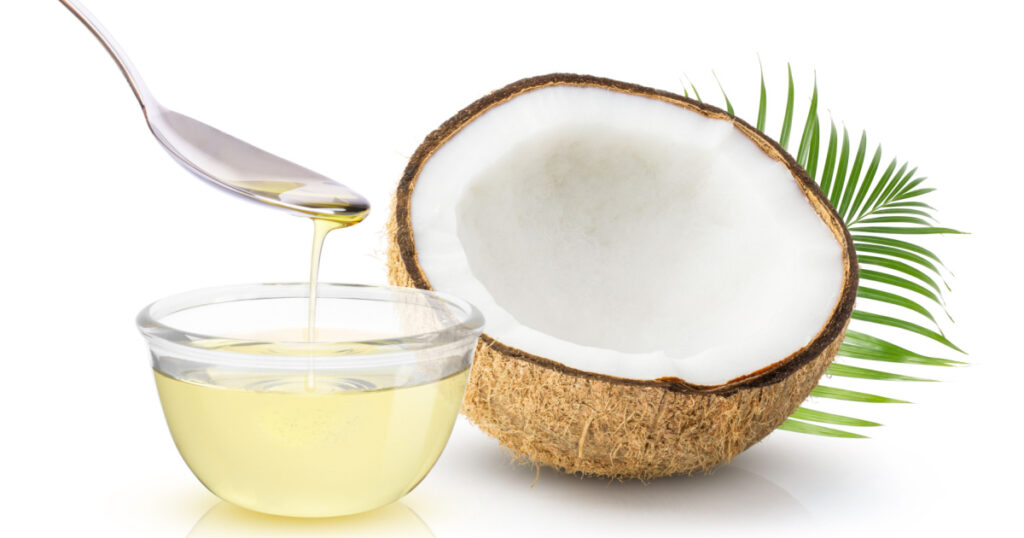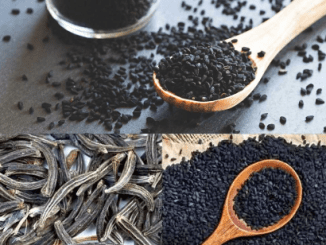As the old adage goes, “you are what you eat.” This familiar saying has never rung truer than in the realm of inflammation and its profound impact on our overall health. While we may think we’re making relatively harmless dietary choices, the truth is that certain foods lurking in our kitchens can be silently fueling a dangerous inflammatory response within our bodies.

In a special article for CNBC, Harvard gut specialist Dr. Jaqueline Wolf shed light on four specific inflammatory culprits that she actively avoids and recommends removing from our regular diets. By delving into the science behind these problematic ingredients and uncovering healthier alternatives, we can empower ourselves to take control of our well-being and reduce the detrimental effects of chronic inflammation.
The Saturated Fat Trap: Coconut and Palm Oil
Coconut and palm oil, two staples found in many households, have long been touted for their versatility in cooking and baking. However, these oils harbor a dark secret – they are exceptionally high in saturated fats. Consuming excessive amounts of these unhealthy fats can trigger inflammation in the body and increase the risk of heart disease, as Dr. Wolf has cautioned.
To combat this inflammatory threat, the Harvard gut specialist recommends swapping out coconut and palm oil in favor of extra-virgin olive oil. This Mediterranean superfood contains beneficial monounsaturated fats and a wealth of antioxidants, making it a far superior choice for both flavor and overall health.

The Inflammatory Burden of Fatty Meats
Fatty meats, such as beef, pork, and processed varieties, also fall under Dr. Wolf’s radar as inflammatory culprits. Much like the saturated fats in coconut and palm oil, the high levels of saturated fats in these animal-based proteins can contribute to inflammation and increase the risk of chronic conditions like heart disease.
While the occasional indulgence in fatty meats is unlikely to cause significant harm, Dr. Wolf advises against making them a regular part of one’s diet. Instead, she suggests opting for leaner protein sources, such as skinless poultry, fish, and plant-based options like beans or lentils, which offer a more inflammation-friendly nutritional profile.

The Processed Food Conundrum: An Inflammatory Cocktail
Highly processed foods, a staple in many modern diets, are another inflammatory minefield that Dr. Wolf urges us to navigate with caution. These heavily manipulated and packaged items are often laden with a cocktail of artificial additives, preservatives, and unhealthy trans fats – all of which can trigger an inflammatory response in the body.
In contrast, Dr. Wolf advocates for a diet rich in whole, unprocessed foods, such as fresh fruits, vegetables, whole grains, and nuts. These nutrient-dense, natural ingredients are inherently anti-inflammatory, providing the body with the essential building blocks it needs to thrive.

The Hidden Inflammation Culprit: Sugary Drinks
Lastly, Dr. Wolf shines a spotlight on the inflammatory threat posed by sugary beverages, including soda, energy drinks, sports drinks, and sweetened juices. These liquid indulgences are not only high in added sugars but also severely lacking in beneficial nutrients. Consuming excessive amounts of these sugar-laden drinks can lead to chronic inflammation, as well as increase the risk of obesity, diabetes, and heart disease.
To combat this inflammatory scourge, the Harvard gut specialist recommends swapping out sugary drinks for healthier alternatives, such as herbal tea, infused water, or water enhanced with fresh fruits or herbs. These options provide hydration without the inflammatory burden of added sugars.
Embracing Anti-Inflammatory Dietary Changes
By addressing these four key inflammatory culprits and making mindful choices to eliminate them from our diets, we can take a significant step towards reducing systemic inflammation and supporting our long-term health. Identifying and removing these problematic foods, while incorporating more nutrient-dense, anti-inflammatory options, can have a profound impact on our overall well-being.

Chronic inflammation is a silent enemy, gradually eroding our health and well-being. But by heeding the expert advice of professionals like Dr. Jaqueline Wolf, we can reclaim control of our dietary choices and fight back against this insidious foe. By removing the inflammatory foods highlighted in this article and adopting healthier alternatives, we can unlock the path to improved overall wellness and a vibrant, energetic life.
In the ever-evolving landscape of nutrition and health, the role of diet in regulating inflammation has become increasingly clear. As we embrace the insights shared by Harvard’s gut specialist, Dr. Wolf, we are empowered to make informed decisions that prioritize our long-term well-being. By eliminating the surprising inflammatory culprits lurking in our kitchens and embracing anti-inflammatory whole foods, we can take a proactive stance against chronic inflammation and unlock a future filled with boundless energy, vitality, and optimal health.


